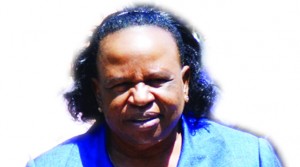By MAYA NTANDA-
ACTING Chief Justice Lombe Chibesakunda has urged the High Court to either dismiss the writ of summons by the Law Association of Zambia (LAZ) or strike her out of the proceedings.
Ms Justice Chibesakunda submitted in a case in which LAZ has sued her and the Attorney General over her appointment as Supreme Court judge that the summons should be dismissed for irregularity.
LAZ is seeking a declaration that Ms Justice Chibesakunda’s re-appointment as Supreme Court judge is illegal, null and void and that she should vacate the office of Supreme Court judge.
LAZ is also seeking a declaration that the President may not appoint a person who has attained and exceeded the age of 65 years to the office of judge of the High Court, Supreme Court, Deputy Chief Justice or Chief Justice.
LAZ, which is the plaintiff in the matter, has further raised preliminary issues that no question of law has been framed by Ms Justice Chibesakunda for the court to determine whether the writ of summons and statement of claim is irregular.
They further submitted that no question of law had been framed on whether Ms Justice Chibesakunda was properly joining as a party to the proceedings, and that order 14A was not available in an action where the State was a party.
But in her submissions dated March 13, this year, drawn through her lawyers, Ms Justice Chibesakunda asked the court to set aside or dismiss the writ of summons for irregularity, and in the alternative to strike her out of the proceedings.
“The second defendant reiterates her submissions as advanced earlier that the plaintiff’s writ and statement ought to be set aside and dismissed for irregularity and in the event that the court is of the view that the plaintiff’s writ is not irregular, the second defendant ought to be removed from the proceedings as a party,” reads the submissions in part.
Ms Justice Chibesakunda further submitted that the court was properly seized with jurisdiction to entertain and determine her application.
She stated that if the order permits the making of such an application orally, the facts disclosed in her affidavit were enough to clothe the court with the requisite jurisdiction under order 14A to entertain and determine the cause.







